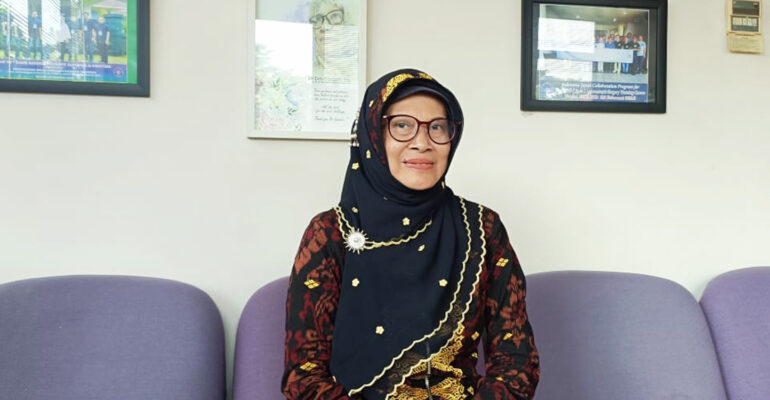Increase Concern for Abandoned Animals, IPB University Professor Invites Shelter Collaboration and Animal Welfare Implementation

The welfare of abandoned animals, such as cats, dogs and other animals living on the streets, is becoming an increasingly pressing issue in Indonesia. Many of these animals live without protection, proper food, and are vulnerable to disease.
IPB University through the School of Veterinary Medicine and Biomedical Sciences (SKHB) takes an active role in addressing this issue, both through education, medical services, and raising public awareness.
Professor of SKHB IPB University, Prof Dr drh Gunanti, MS said that until now there is no exact data available on the number of abandoned animals in Indonesia. However, some community partners who have high concern have formed shelters to accommodate and care for these animals.
“If accommodated in shelters, these animals will receive proper care, adequate food and water intake, and complete vaccinations, so that their health conditions can be maintained properly,” she said.
As a form of contribution, the Veterinary Professional Education (PPDH) program of SKHB IPB University routinely sterilizes animals from shelters, under the supervision of supervisors.
“We often work together to sterilize both male and female animals. This is done by PPDH students in the Division of Surgery and Radiology. The goal is to control the population of abandoned animals,” said Prof Gunanti who is also the Director of the Animal Hospital and Education (RSHP) IPB University.
She added, if no one adopts, the animals are returned to their original location in sterilized condition to prevent breeding.
From a medical perspective, the health condition of abandoned animals is very poor. Prof Gunanti said that these animals generally suffer from skin diseases due to fungal infections, scabies, or demodex, as well as serious infectious diseases such as rabies, parvovirus, and distemper.
“Many also suffer from malnutrition, dehydration, and injuries due to accidents or violence,” she explained. In fact, some diseases are zoonotic such as rabies and toxoplasmosis, which have the potential to be transmitted to humans.
Regarding legal protection, Prof Gunanti believes that Law No. 41/2014 on Animal Husbandry and Animal Health has been a good first step. However, its implementation needs to be strengthened.
“Increased public awareness and participation is needed in protecting abandoned animals,” she said.
IPB University also continues to encourage public education through campaigns in schools, collaboration with shelters, and promotion of animal adoption. In addition, Prof Gunanti also emphasized an understanding of animal welfare, namely the five basic principles of animal welfare.
“Animals must be free from hunger and thirst, free from discomfort, pain, fear, and able to express their natural behavior,” she said. (IAAS/RWA)


